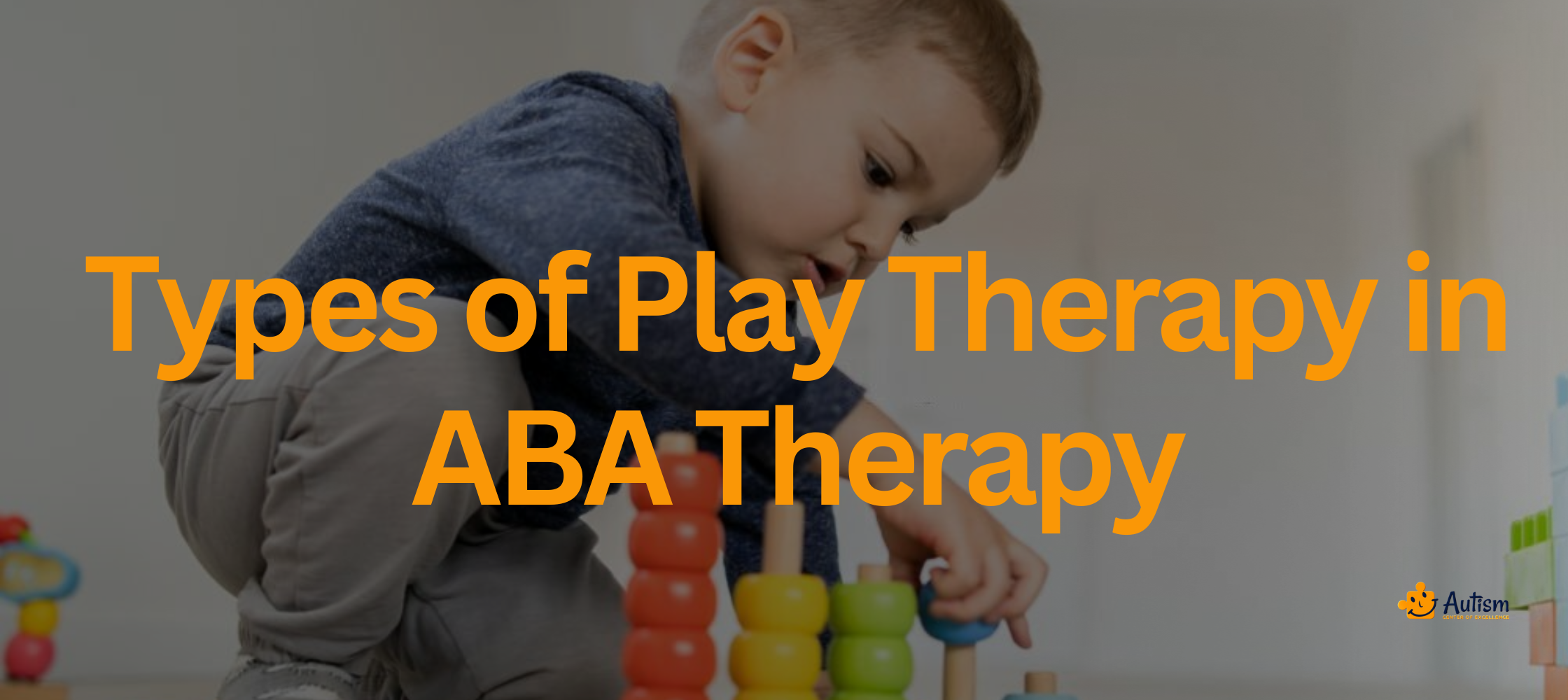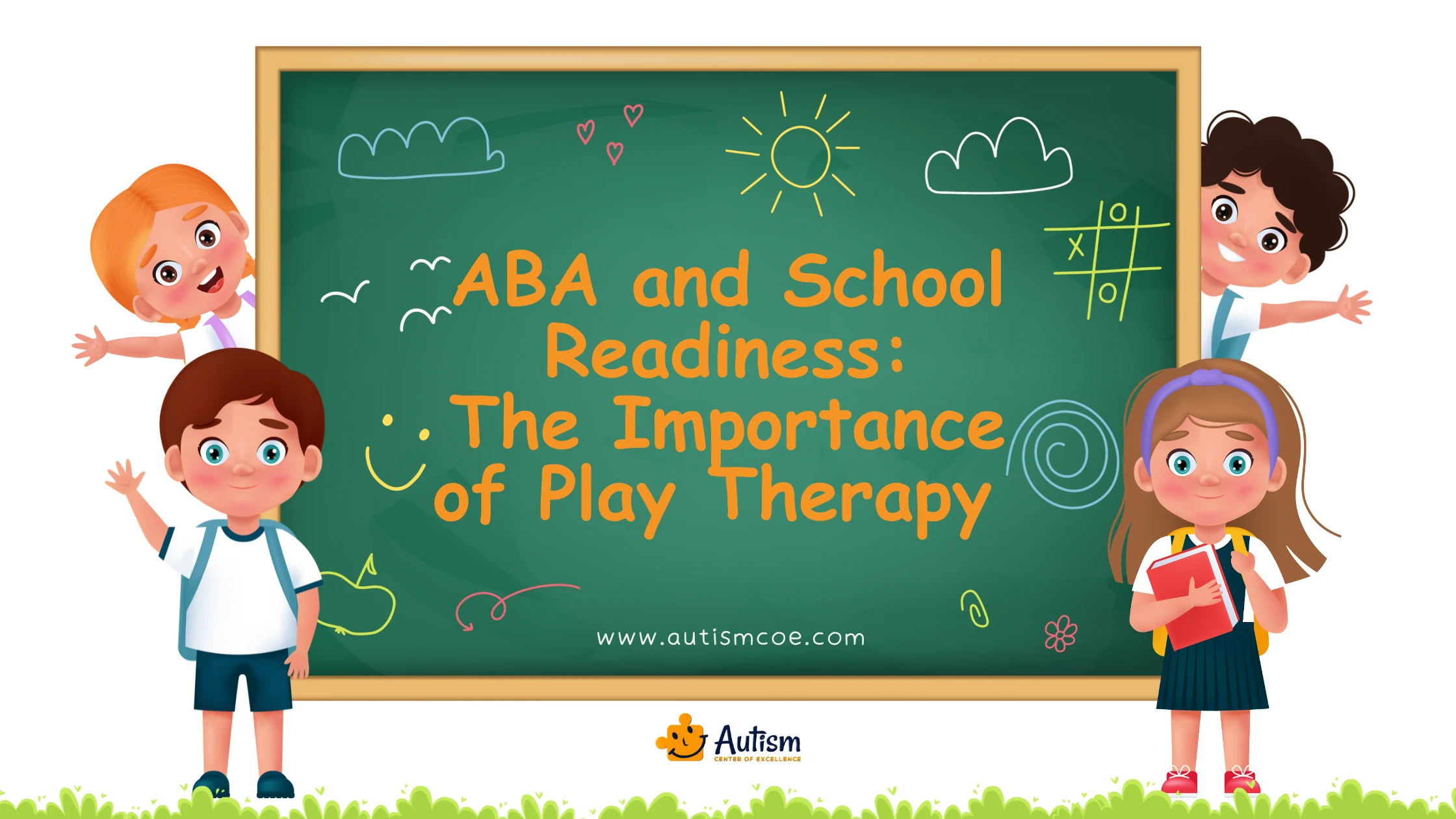School readiness is a vitally important concept to children as they begin their educational journey. It denotes the extent of readiness of a child to attend formal school and participate in the learning process properly. ABA (Applied Behavior Analysis) therapy is essential in promoting School Readiness as the therapy helps children acquire required skills and behaviors. School readiness and how play within the context of ABA Therapy enhances this crucial milestone is the focus of this blog post.
5 Key Benefits of Play Therapy
Play, which is one of the major characteristics of childhood, is a very important component that should not be overlooked. It is multifunctional and deep impact on children’s growth. Here are five key reasons why play is crucial for children:
1. Enhancing Cognitive Skills:
Play prepares the children to solve problems, think critically, and make choices through which they process. This sparks curiosity such that they explore and search for truths or solutions as they investigate. Children have the opportunity to harness their Cognitive Skills while they are playing such as memory, attention, and logical reasoning skills.
2. Improving Social and Emotional Development:
Plays also give children with opportunities for social interaction with other kids and they get important social skills. Moreover, it is a source of collaboration, giving, empathy, and communication among the community. Having fun is an important factor contributing to kids feeling and managing their emotions so as to build up their Emotional Intelligence.
3. Fostering Creativity and Imagination:
Play becomes the instrument that helps children explore their imagination, and creativity and express them freely. It stimulates their imagination, letting them come up with unorthodox means and new approaches to task-solving. Having fun and playing games is the way for kids to become better and understand themselves.
4. Promoting Physical Development and Coordination:
Active playing develops the Motor Skills of children. Fun activities like running, jumping, climbing, and painting develop their physical coordination, strength, and balance. Moreover, regular physical playing has benefits for general health and well-being.
5. Strengthening Problem-Solving and Decision-Making Abilities:
Play provides children with a variety of problems and situations, where problem-solving and decision-making skills are necessary. Playing allows children to develop the skills they need to evaluate situations, create tactics, make decisions, and adjust their behavior. These skills are important in practical situations.
Types of Play Therapy in ABA Therapy

ABA therapy is a life-transforming type of therapy that provides children with the ability to maximize their potential and enjoy a higher quality of life.
1. Functional Play Therapy:
Functional Play Therapy includes repetitive movements and manipulation of items. It assists children in the acquisition of sensory-motor skills and learning cause and effect.
2.Constructive Play Therapy:
Acting out Play Therapy is playing with toys or figures. It promotes challenge-solving, creativity, and hand-eye coordination.
3. Symbolic Play Therapy:
Symbolic play therapy is the use of symbols or actions to stand for something else, for example, being a teacher or playing with dolls. This form of play promotes linguistic development, creativity, and social skills.
4. Cooperative Play Therapy:
Cooperative play Therapy involves interacting and working together with others toward a mutual objective like playing a team sport or participating in group activities. It promotes team spirit, communication, and social empathy.
ABA Therapy vs. Play Therapy
Uncover the might of ABA Therapy against Play Therapy! Do you need effective solutions to tackle the challenges and boost development? ABA Therapy offers Evidence-Based Techniques customized to your individual needs, implementing structured interventions that help to foster positive behavior outcomes. ABA Therapy is a proactive style of therapy that deals with many developmental and behavioral issues through behavior modification and skill acquisition. However, Play Therapy is an approach that is more playful and creative, enabling the individuals to release and communicate their emotions and experiences through the use of play. Despite the advantages of both therapies, ABA Therapy offers a thoughtful and outcome-oriented strategy, which can assist you or your family in achieving long-term success. Experience the difference now and Unlock the Full Potential with ABA Therapy!
Practical Strategies to Incorporate Play Therapy into School Readiness Programs
To ensure that play becomes an integral part of school readiness programs, here are some actionable strategies for parents, educators, and caregivers:
Create play-based learning environments:
Create classroom, play, or home environments that promote interaction, creativity, and problem-solving.
Incorporate play into daily routines:
Infuse play into daily activities like cooking, cleaning, or outdoor time, making them playful learning experiences.
Use play to reinforce learning:
Embed play-based activities that are consistent with Educational Objectives in children, making them practice what they have been taught in a pleasurable way.
Encourage open-ended play :
Give children toys and objects that encourage creative play and discovery. Do not engage in rigidly structured activities that suppress creativity.
Join Our Weekly Newsletters!
Subscribe now to stay updated with our latest email updates.
Teaching Play in ABA Therapy
Get our comprehensive system on how to integrate play into ABA therapy! Our approach is meant for people over 20 years of age and it integrates the Principles of ABA with stimulating play-based activities. Explore the role of play in fostering social skills, communication, and problem-solving skills. Our professional advice will help you acquire the information and abilities to establish an entertaining and efficient learning space. Unleash all that ABA therapy has to offer by understanding the transformative power of play. Enroll and transform your therapy sessions, now!
Frequently Asked Questions & Answer
What are the Five Importance of Play Therapy?
Play triggers cognitive development that contributes to the development of problem-solving skills and promotes creativity in children.
Play also improves development of the physical skills such as coordination, balance, and flexibility.
Play enhances social and emotional growth by providing children with a chance to talk, comprehend, and cooperate.
Play contributes to the development of language as children talk and listen to stories while they play make-believe.
Play promotes overall well-being by reducing stress and increasing positive mental health.
What is Play in ABA?
The play in Applied Behavior Analysis (ABA) implies the use of play activities for teaching and reinforcement of certain skills.
Play is the central principle of ABA, which provides children with the opportunity to learn new skills in a fun and motivating way.
What are the 4 Different Types of Play?
Physical play: comprises different forms of exercises like running, jumping, and dancing that aid physical activity and exercising.
Constructive play: is focused on Play and making with toys or resources; like lego or art supplies.
Pretend play: is engaging one’s imagination in role-play or pretend scenarios such as Play house or a superhero.
Social play: includes interactions with other people, like Playing social games, turn-taking, or cooperative play.
What is the Difference between ABA Therapy and Play Therapy ?
ABA represents a particular therapy approach grounded in learning and behavior principles that seek to promote various skills and behaviors.
On the contrary, play is a natural process that kids indulge in to explore, learn, and for leisure.
ABA can employ activities that are play-based for teaching purposes but ABA is not confined to that and includes other methods.
How do you Teach Play in ABA Therapy?
Play intervention in ABA is all about breaking play skills down into small, achievable blocks and concrete teaching strategies to assist children in learning and generalizing the skills.
ABA therapists use such techniques as prompt, shaping, and reinforcement to teach specific play behaviors.
The play skills teaching approach is usually methodical and individualized, built on the abilities of the child currently, addressing one area of play development.
Conclusion
Play therapy is a very crucial element of ABA Therapy and it is not just a play. It is a wonderful learning tool that makes children progress in various areas. ABA therapists utilize play-based interventions that enable children to participate and learn while gaining very important skills highly effectively. The forms of play in ABA therapy encompass four types: functional play, constructive play, symbolic play, and cooperative play. All types of play bring different benefits such as sensory-motor skills development, problem-solving, creativity, and fine motor skills. Abundant play patterns integration helps to create a kind friendly and stimulating environment making ABA therapy an effective mode of learning new skills for children.
Please Note: The content of this blog is for informational purposes only and should not be considered a substitute for professional medical advice, diagnosis, or treatment. Consult a qualified healthcare professional for personalized guidance tailored to your specific situation.

Bhavika Bhasin
Bhavika Bhasin is the Research and Marketing officer at AutismCOE. She works with children and adults with ASD. Her clinical research includes evaluating various available autism screening and diagnosis methods and their efficacy. She is currently developing a novel screening exam that is indicated to be more accurate than the existing available exams. She is also writes articles papers for various publications.


